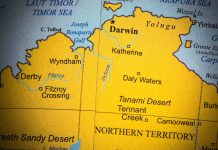
With ongoing concerns over the toxic effects of mercury, a global commitment consisting of some 139 territories and nations have dedicated themselves to making the UN’s Minamata Convention on Mercury an international law.
According to a recent news report*, the treaty gives these governments 15 years to put a stop to mercury mining. It has been signed by 92 governments, and shows their intention to follow the treaty, adjusting national law if and where necessary.
The document is unlikely to be ratified until 2016 at the earliest – 50 governments will need to signatories in order for the law to be passed – and will not affect mining engineering processes that use mercury in small-scale gold mining.
Bloomberg news** reported that the UN Secretary-General Ban Ki-moon released a statement saying: “The Minamata Convention will protect people and improve standards of living for millions around the world, especially the most vulnerable”.
Natural mercury emissions, such as volcanic and geothermal activity experienced in places such as New Zealand, Iceland and many other countries, are not part of the convention.
The dangers of high levels of mercury are well documented, with toxic effects on the brain, internal organs and even children’s mental development. This particular treaty is named after an infamous outbreak of mercury poisoning in Minamata, Japan, in the 1950’s.
The cause was cited to be the release of methyl mercury in the industrial wastewater from a chemical factory, causing a toxic build up in fish and shellfish in the nearby Minamata Bay, which was then eaten by the local people. 2,265 victims had been officially recognised (1,784 of whom had died as at March 2001)***
Speaking about the treaty, Amy Adams, New Zealand’s Environmental Minister, said: “The international community has worked together to produce a binding agreement that will help reduce the risk for future generations from increased mercury emissions from industrial processes and trade.”
Key points of the convention include processes aimed at the identification, control and clean up of mercury from many sources; exporting and importing of the metal; industrial activity that causes mercury emissions; the direct mining of mercury; considerable releases to land and water; mercury storage; contaminated sites and dealing with waste mercury.
The Arctic Council – an organization with Canadian chairmanship and which includes Iceland, Norway, Denmark, Sweden, Russia, Finland and the United States – has pledged their support for the treaty.
*http://www.mineweb.com/mineweb/content/en/mineweb-political-economy?oid=208602&sn=Detail

























